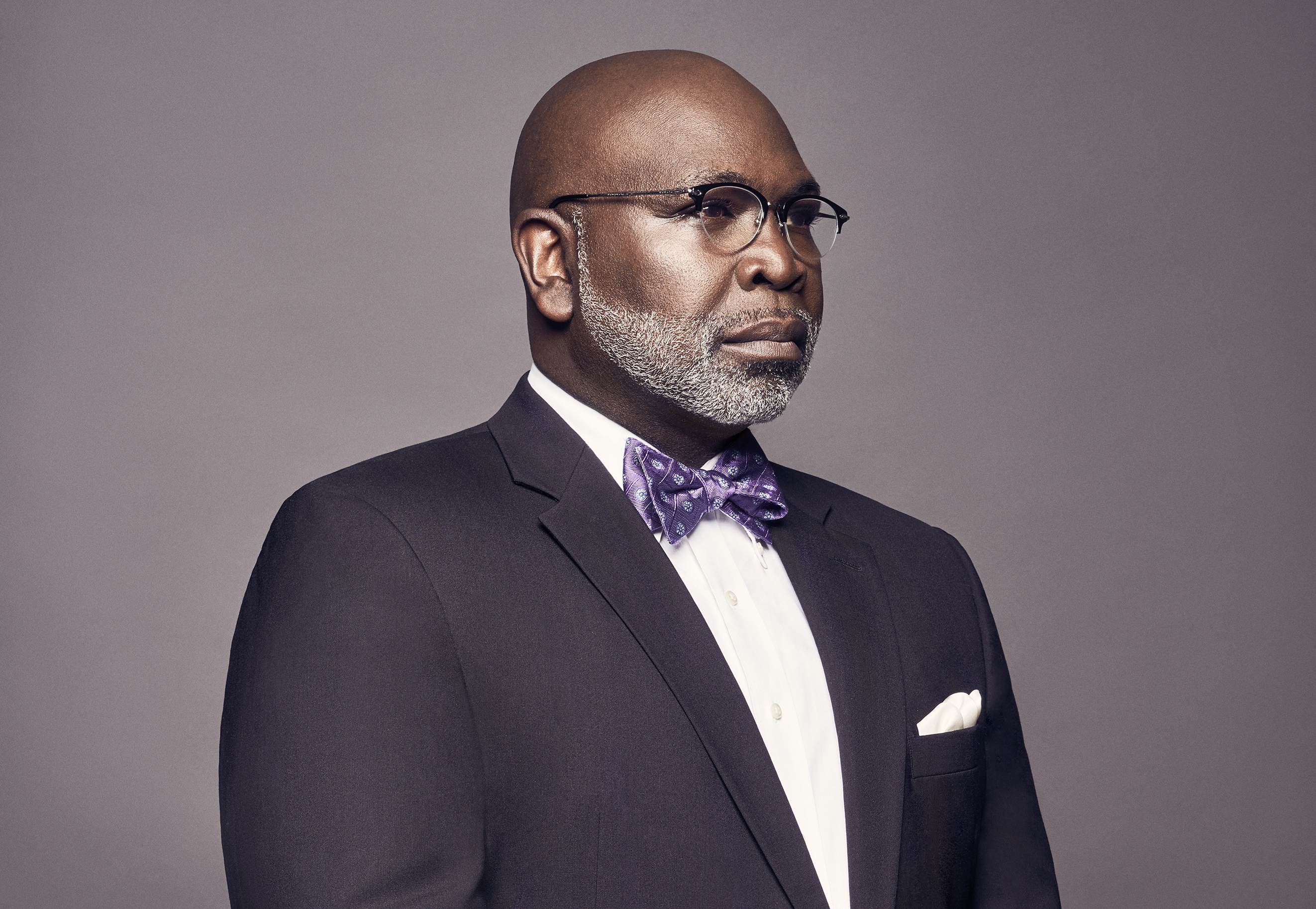At this point, Dr. Willie Parker should be a familiar name. A charismatic gynecologist with a passion for advocacy, he’s taken a frontline role in the movement for reproductive rights and justice as an abortion provider for Deep South communities in need. We profiled his work last August and interviewed him this year about his role in a recent multi-faith clinic blessing in Washington, D.C. Parker takes his activism a step further with a new memoir, "Life’s Work: From the Trenches, a Moral Argument for Choice."
Written with Lisa Miller and released on April 4, Parker’s book lays out his trajectory, from growing up in extreme poverty in Birmingham, Alabama, to living the life as a well-paid OB-GYN in Hawaii. His journey is one of contradictions and deep regrets. In the book we see him transform, from the person who gave his unmarried, teenage sister the cold shoulder for getting pregnant into the fierce supporter of women in all of their decisions that he is today. Parker also reveals a path from born-again Christian to a man of faith who questions how he can justify turning away patients in need of an abortion.
The turning point in Parker’s career comes when a new, anti-choice physician joins his Hawaii practice and decides that the clinic should no longer provide abortions. While Parker himself has never done the procedure, he refers clients to his colleagues who would. The loss of that option leads him to a realization:
"It was like a punch, all at once, in my spiritual gut. The Scripture came alive and it spoke to me. The earth spun, and with it, this question turned on its head. It became not: It is right for me, as a Christian, to perform abortions? But rather: Is it right for me, as a Christian, to refuse to do them? Now I saw, without doubt or fear or ambivalence, that it was appropriate, even ethical, for me to provide this care. More: that having understood this, it would be inappropriate, even cowardly, for me to be contented to sit by as other people did the work."
Soon after that realization, Parker begins to dedicate most of his career to performing abortions. He doesn’t start off working in the Deep South, but returns to Birmingham after joining a traveling medical core that serves communities with no full-time provider. In "Life’s Work" Parker writes vividly about the hostility he faces when he gets to work, including White protesters who use racial slurs:
"Every morning, after I turn off the ignition, I sit in my car and gather myself, to quiet myself down. I channel the courage of the civil rights legacy that I have studied, and I correlate these verbal assaults to those, much fiercer and more relentless, that Dr. King and others withstood every day. As I open the car door, I remind myself of what my mother told me when I was eight years old, the first time anyone ever called me "nigger": I should never hit someone unless he hits me first. I take a deep breath and I gather my stuff: keys, laptop, phone, bag. I do not engage. I stand up straight, my eyes focused on the ground, and I walk, neither fast nor slow, toward my place of work."
Parker has not formally studied theology, but he dedicates his life to studying the Bible and other spiritual works, including those of the Rev. Dr. Martin Luther King Jr. and Thomas Merton. His deep spirituality is a key theme of the book. Parker writes of applying his personal understanding of Christian theology to abortion, and believing that, for decades, the pro-choice movement has ceded the moral conversation about abortion to opponents:
"If you take anti-abortion rhetoric at face value, without knowing much about the Bible, you might assume that the antis have Scripture on their side. But they do not. The Bible does not contain the word "abortion" anywhere in it."
In the last chapter of "Life’s Work," Parker writes of a God who does not dictate every move in a person’s life:
"The God part is in your agency. The trust—the divine trust—is that you have an opportunity to participate in the population of the planet. And you have an opportunity not to participate. The part of you that’s like God is the part that makes a choice. That’s what’s sacred."
